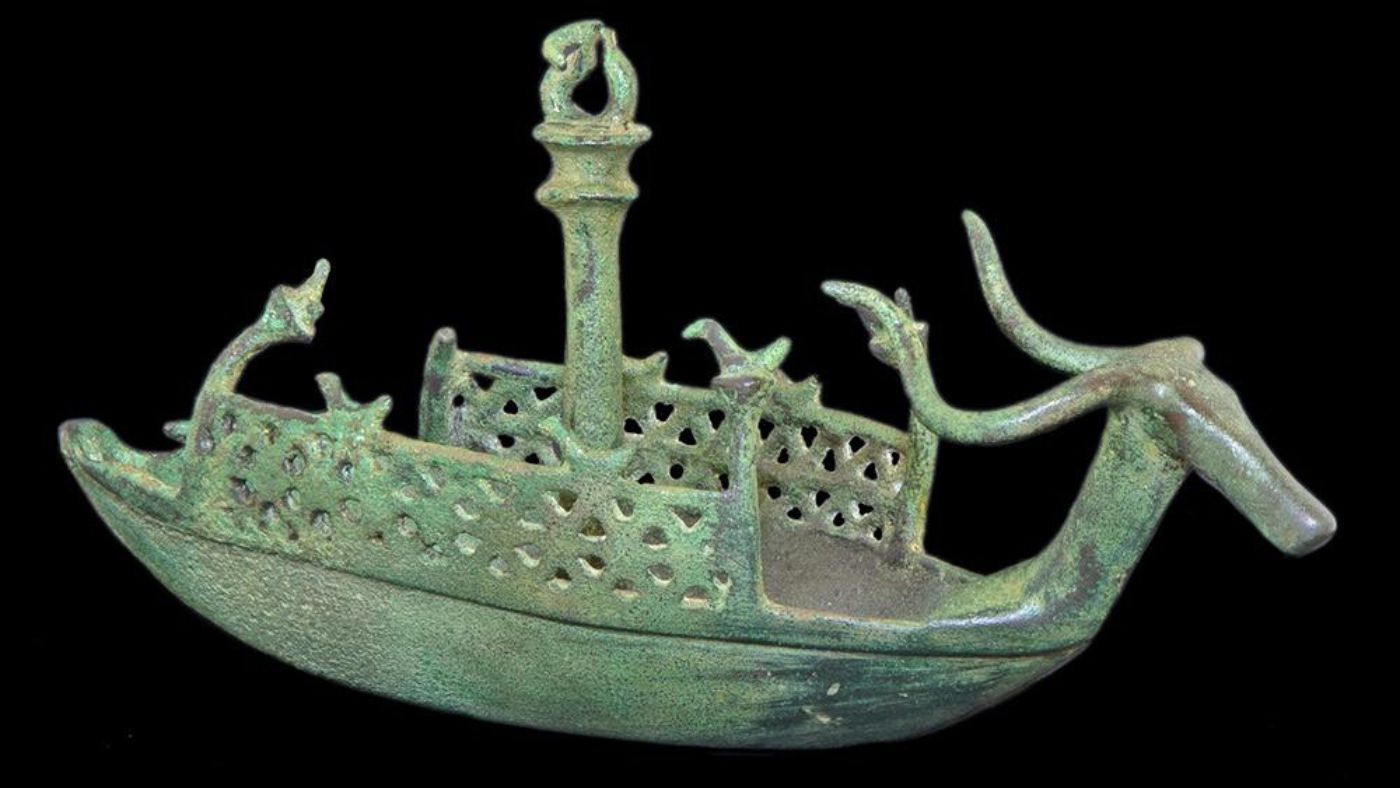Islanders: The Making of the Mediterranean review – a ‘revelatory’ exhibition
Fitzwilliam Museum show focuses on island civilisations of the ancient Mediterranean

A free daily email with the biggest news stories of the day – and the best features from TheWeek.com
You are now subscribed
Your newsletter sign-up was successful
The words “insularity” and “isolation” both come from the Latin for “island”, said Maev Kennedy in The Art Newspaper. But the island civilisations of the ancient Mediterranean were anything but closed off. As this new exhibition at Cambridge’s Fitzwilliam Museum shows, they were remarkably open to outside influence – to foreign materials, skills, fashions and legends. Focusing on the classical culture of Crete, Sardinia and Cyprus, the show demonstrates that “the sea united rather than divided” these civilisations, allowing for considerable cultural cross-pollination. Bringing together around 200 objects dating from the Neolithic era to the Roman period, it shows that the inhabitants of the three islands attempted to “explain their tangled histories” through storytelling – even when, as with Sardinia’s Nuragic civilisation, they had no system of writing. Among the “splendid loans” on display are a Cypriot statue of a “goddess rising from the sea” that is believed to have influenced Sandro Botticelli’s The Birth of Venus; some “vivid” bronze figurines from Sardinia; and a drawing of a dolphin – a “sacred” animal that “represented friendship” – found on Crete.
The show is “awash” with “fascinating” exhibits, said Alastair Sooke in The Daily Telegraph. We see bronze statuettes of a “four-eyed warrior and an archer in a horned helmet” created “five or six millennia ago” in Nuragic Sardinia. The culture was so named for its nuraghe, the “conical stone towers” that typified its architecture; so “strange” were these structures that they were later thought to be “witches’ houses”. Best of all is the “sophisticated” art of Minoan Crete, represented here by objects including an “astonishingly well-observed” copper-alloy figure of a crawling baby and a crab shell-shaped cup from around 1900BC. The show positively bursts with goodies, but more could have been done to “turn a series of impressive archaeological finds into a defter, less scrappy, piece of storytelling”.

It hardly matters, said Laura Cumming in The Observer, when the exhibition presents us with marvel after marvel. Consider, for instance, an “exquisite” little bronze ship created in Sardinia between 1000-700BC, its mast “topped with a heraldic bird”, its prow resembling the head of an ox. Cyprus, we learn, even had “its own terracotta army”, represented here by statues of “warriors riding into the dawn on horse-drawn chariots”. There’s an iron archer “raising his tremulous bow” that could be by Giacometti. “You will see Picasso and Brâncusi at every turn, and the origins of modern sculpture millennia in advance.” To call these extraordinary items “revelatory” would be an “understatement”. Indeed, “I have scarcely seen anything like them before”.
The Week
Escape your echo chamber. Get the facts behind the news, plus analysis from multiple perspectives.

Sign up for The Week's Free Newsletters
From our morning news briefing to a weekly Good News Newsletter, get the best of The Week delivered directly to your inbox.
From our morning news briefing to a weekly Good News Newsletter, get the best of The Week delivered directly to your inbox.
The Fitzwilliam Museum, Cambridge (01223-333230, fitzmuseum.cam.ac.uk). Until 4 June
A free daily email with the biggest news stories of the day – and the best features from TheWeek.com
-
 What to know before filing your own taxes for the first time
What to know before filing your own taxes for the first timethe explainer Tackle this financial milestone with confidence
-
 The biggest box office flops of the 21st century
The biggest box office flops of the 21st centuryin depth Unnecessary remakes and turgid, expensive CGI-fests highlight this list of these most notorious box-office losers
-
 What are the best investments for beginners?
What are the best investments for beginners?The Explainer Stocks and ETFs and bonds, oh my
-
 A thrilling foodie city in northern Japan
A thrilling foodie city in northern JapanThe Week Recommends The food scene here is ‘unspoilt’ and ‘fun’
-
 Tourangelle-style pork with prunes recipe
Tourangelle-style pork with prunes recipeThe Week Recommends This traditional, rustic dish is a French classic
-
 Samurai: a ‘blockbuster’ display of Japan’s legendary warriors
Samurai: a ‘blockbuster’ display of Japan’s legendary warriorsThe Week Recommends British Museum show offers a ‘scintillating journey’ through ‘a world of gore, power and artistic beauty’
-
 BMW iX3: a ‘revolution’ for the German car brand
BMW iX3: a ‘revolution’ for the German car brandThe Week Recommends The electric SUV promises a ‘great balance between ride comfort and driving fun’
-
 Arcadia: Tom Stoppard’s ‘masterpiece’ makes a ‘triumphant’ return
Arcadia: Tom Stoppard’s ‘masterpiece’ makes a ‘triumphant’ returnThe Week Recommends Carrie Cracknell’s revival at the Old Vic ‘grips like a thriller’
-
 My Father’s Shadow: a ‘magically nimble’ love letter to Lagos
My Father’s Shadow: a ‘magically nimble’ love letter to LagosThe Week Recommends Akinola Davies Jr’s touching and ‘tender’ tale of two brothers in 1990s Nigeria
-
 Send Help: Sam Raimi’s ‘compelling’ plane-crash survival thriller
Send Help: Sam Raimi’s ‘compelling’ plane-crash survival thrillerThe Week Recommends Rachel McAdams stars as an office worker who gets stranded on a desert island with her boss
-
 Book reviews: ‘Hated by All the Right People: Tucker Carlson and the Unraveling of the Conservative Mind’ and ‘Football’
Book reviews: ‘Hated by All the Right People: Tucker Carlson and the Unraveling of the Conservative Mind’ and ‘Football’Feature A right-wing pundit’s transformations and a closer look at one of America’s favorite sports